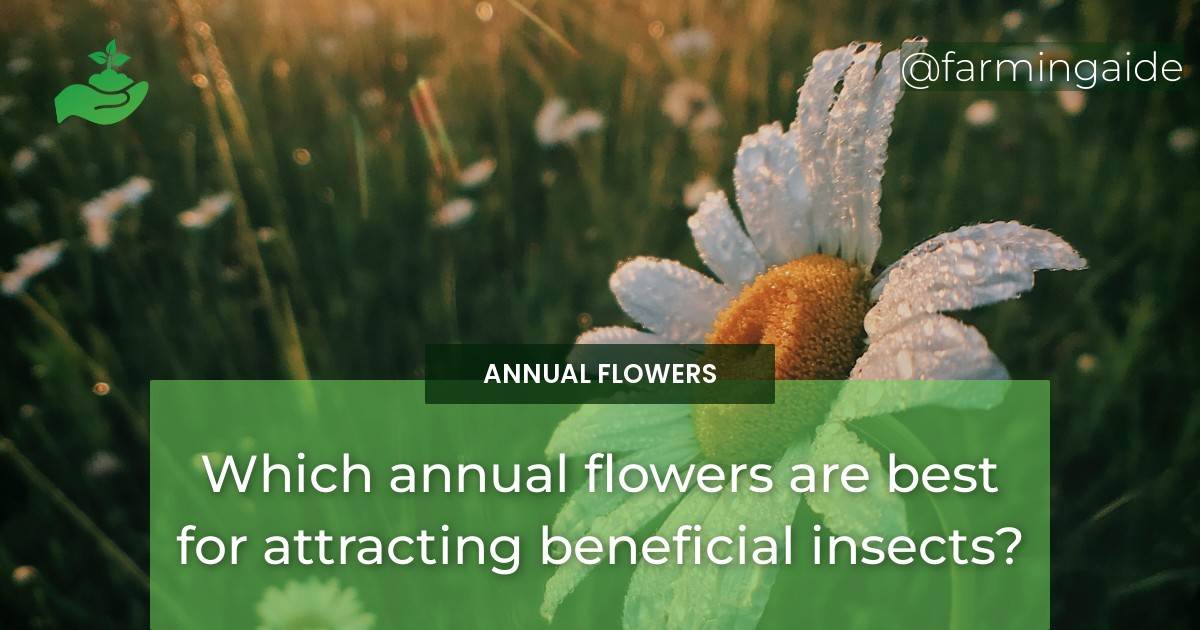Annual flowers are a great way to beautify your garden while also attracting beneficial insects that can help control pests. Choosing the right flowers can help you create a natural pest control system that can reduce the need for harsh chemicals.
In this article, we look at some annual flowers that attract beneficial insects
Table of Contents
The Importance of Beneficial Insects in Natural Pest Control
Beneficial insects play a vital role in controlling pests and maintaining a healthy garden. They prey on common garden pests like aphids, mites, and caterpillars, and also help pollinate plants.
Ladybugs
Ladybugs are one of the most recognizable beneficial insects, and they love to eat aphids and other soft-bodied insects. A single ladybug can eat up to 50 aphids per day.
Lacewings
Lacewings are another beneficial insect that preys on aphids, mites, and other small insects. They are attracted to nectar-producing plants like dill, angelica, and sweet alyssum.
Top Annual Flowers for Attracting Beneficial Insects
Calendula
Calendula, also known as pot marigold, is a brightly colored flower that attracts ladybugs, lacewings, and hoverflies. It also has medicinal properties and can be used to make salves and tinctures.
Sweet Alyssum
Sweet alyssum is a low-growing flower that produces a lot of nectar, which attracts beneficial insects like lacewings and hoverflies. It’s also easy to grow and can be used as a groundcover or in containers.
Sunflowers
Sunflowers are not only beautiful, but they also attract birds and beneficial insects like ladybugs and lacewings. They are easy to grow from seed and come in a variety of sizes and colors.
Zinnias
Zinnias are another colorful flower that attracts a variety of beneficial insects. They are easy to grow and come in a wide range of colors and sizes.
How to Plant Annual Flowers to Attract Beneficial Insects
Soil Preparation
Before planting annual flowers, prepare the soil by removing weeds and adding organic matter like compost or aged manure. This will help create a healthy growing environment for your plants.
Planting Techniques
When planting annual flowers, be sure to space them according to the instructions on the seed packet. This will help prevent overcrowding and ensure that each plant has enough room to grow.
Additional Tips for Encouraging Beneficial Insects
Companion Planting
Companion planting involves planting different crops together in a way that benefits both plants. For example, planting marigolds near tomatoes can help repel pests and attract beneficial insects.
Avoiding Pesticides
Pesticides can harm beneficial insects, so it’s important to use them sparingly or not at all. Instead, try using natural pest control methods like handpicking pests or using insecticidal soap.
Can the best annual flowers for attracting beneficial insects also attract butterflies?
Yes, you can attract butterflies with annual flowers. Many of the best annual flowers for attracting beneficial insects, such as marigolds, zinnias, and lantanas, also happen to be favorites of butterflies. Planting these flowers in your garden will help to naturally attract beneficial insects and butterflies at the same time.
Conclusion: Enhancing Natural Pest Control with Annual Flowers
By planting annual flowers that attract beneficial insects, you can create a natural pest control system that will help keep your garden healthy and beautiful. Plus, you’ll be doing your part to support biodiversity and reduce your reliance on harmful chemicals.


